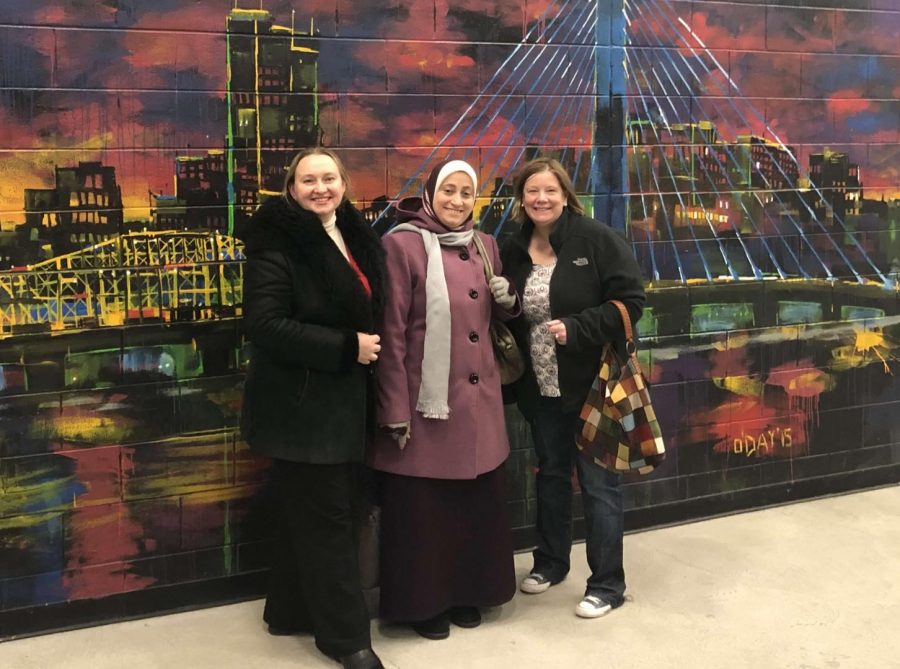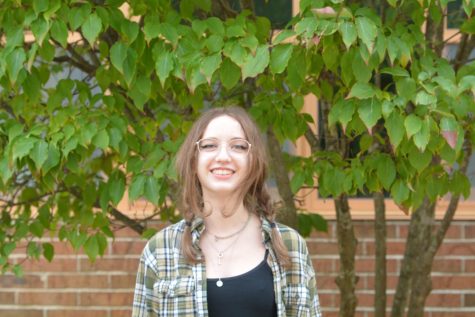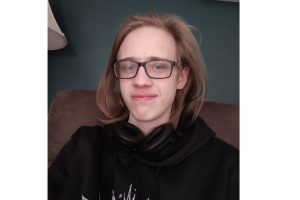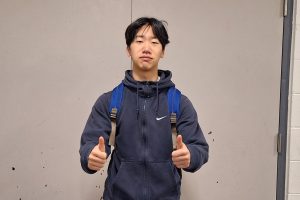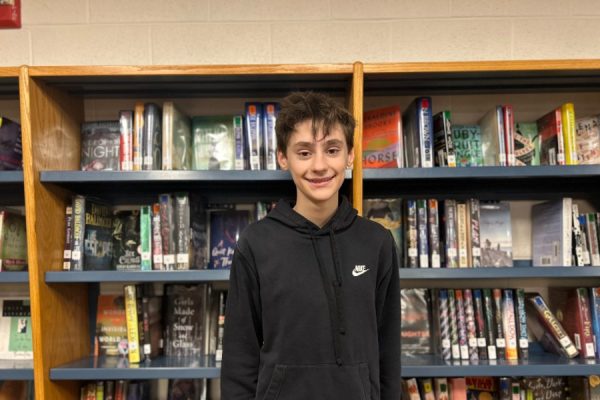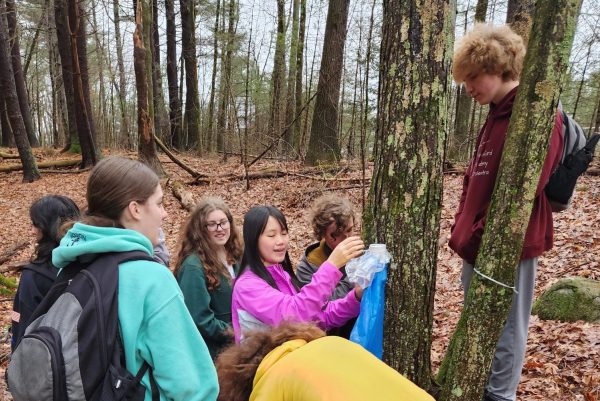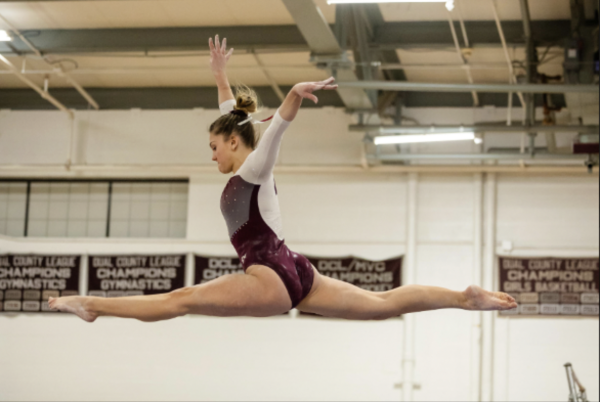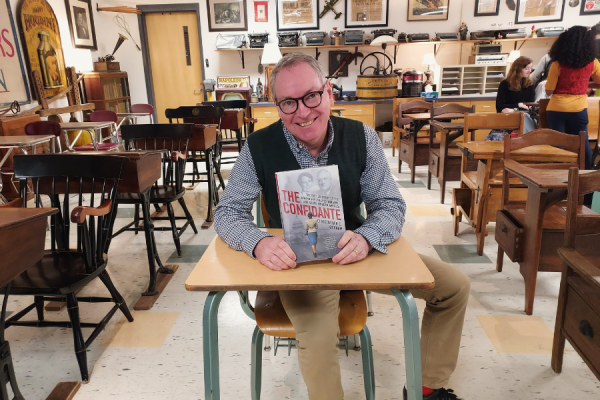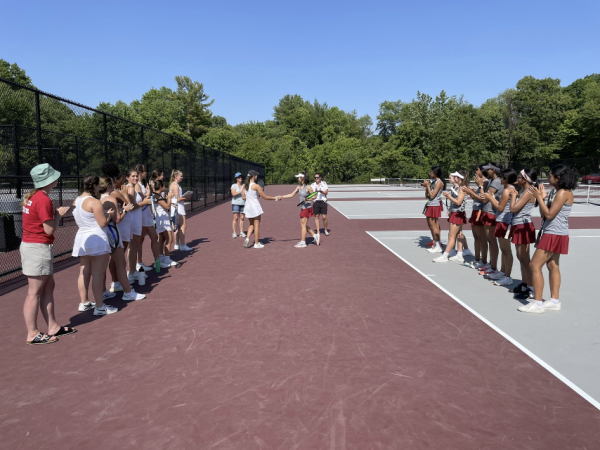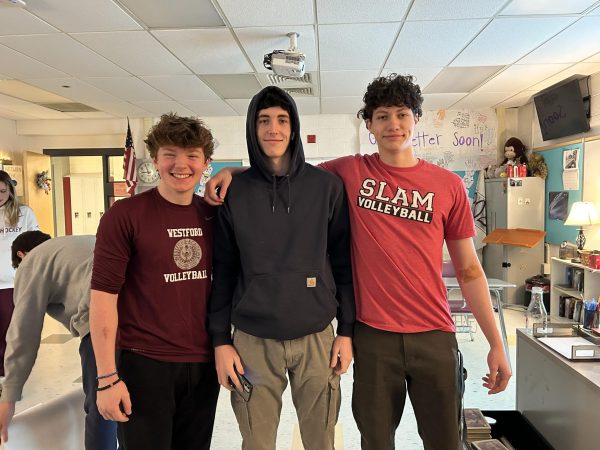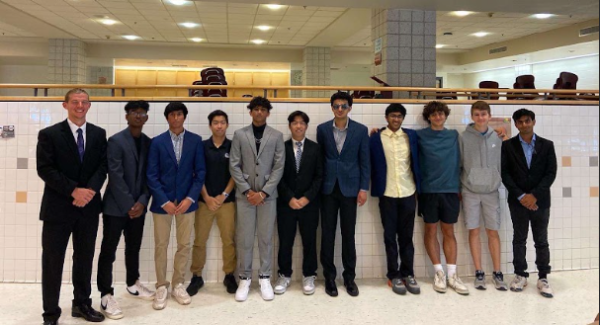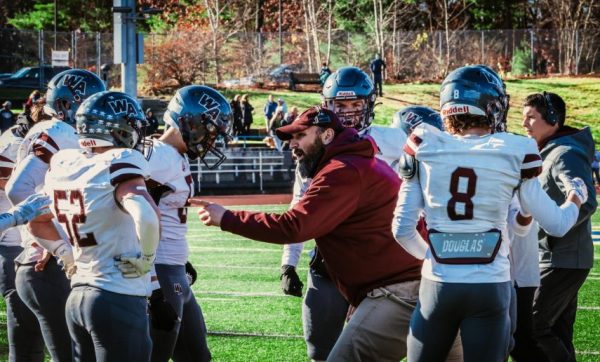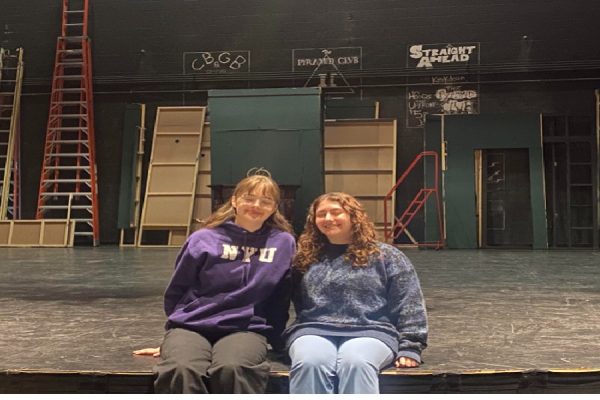International teachers bring fresh perspectives to WA
Kristen Morris posed alongside two of her previous international visitors.
March 4, 2021
“Knowledge is power” is a phrase that is often recited but generally taken for granted. Education is varied all over the world when it comes to educators, resources, and schooling, with each teacher and student having their own unique relationship with learning. One opportunity an individual can take to further learn and gain a deeper perspective of the world is to meet with people from various backgrounds and cultures.
Westford Academy is one of many schools hosting international teachers through the Fulbright TEA Program. Sponsored by the U.S. Department of State, the TEA program is a six-week arrangement that assigns certain international educators to one of many “host schools” in the United States, allowing them to observe American classrooms and share their experiences with teachers and students. The program aims to improve education worldwide through the relationships formed between the United States and these participating countries.
Spanish teachers, Kristin Morris and Jennifer Ganley, are two such applicants who jumped on the opportunity to host an international teacher at Westford Academy. Both have been involved with the program for multiple years, with this being Morris’s second year and Ganley’s fourth.
In previous years, visiting teachers would observe classes and interact with students and teachers in person; however, due to COVID-19, both Morris and Ganley’s respective visitors are instead streaming virtually into their classes throughout their stay.
Morris is especially looking forward to this year, as she had a very positive experience with her previous visitor. The two formed an instant connection and still remain in touch through platforms such as WhatsApp, where they still compare lesson plans and share stories with one another. The experience made her excited to continue the program this year and made her recognize the power of interacting with people from all over the world.
“I’ve always loved world cultures and languages, [hence why] I teach Spanish, but for me, this goes above and beyond just Spanish […] You learn so much from an international counterpart […] you really bring back to your students a different perspective,” Morris said.
This year, Ganley’s visiting teacher is Mandisa Ndaba, a South African educator from the city of Johannesburg. In previous years, Ganley has been visited by teachers from primarily Spanish-speaking countries, so this is the first time she has hosted a teacher from a country outside of the language she teaches. Knowing that this will be a different experience compared to previous years, Ganley sees this as an opportunity for her students to learn more about another culture and expand their global knowledge outside of the Spanish-speaking world.
“My hope is that my students not only understand more about another culture, but also about what education looks like in other countries and that it will open their eyes to the fact that they are very lucky to have the education that they do. In many other countries, [schools] don’t have access to Wi-Fi or any of the technology that we have and I think that sometimes is a very easy thing to forget,” Gansey said.
In her home city, Ndaba teaches English at a township public school, with classes containing thirty to seventy pupils at a time. Wanting to deliver the best possible content to her students and prepare them for life after graduation, the TEA Program appealed to Ndaba because its educational goals aligned with her own.
“The expertise and knowledge that Fulbright believes and advocates for are relevant to my educational goal, which is to teach through multiple lenses of the world and incorporate what other people do in different parts of the world [into my lessons],” Ndaba said. “Especially from the United States, as it is a leading country in education. [I want to incorporate some of their practices] into my own teaching and influence my community.”
As a non-Spanish speaker, Ndaba was initially unsure if she would be able to pick up any techniques from a Spanish class, but due to the orderly structure of Ganley’s classes, she was able to easily follow along and observe. The use of visuals and technological aid helped piece together each activity and bring everything together into one whole lesson.
“I was amazed when the students first presented in Spanish and I found that I could follow through with the lesson. What this taught me was that visuals and technology play a critical role in education […] the learners were all fully engaged and enthusiastic in their presentations,” Ndaba said.
She especially admired how Ganley’s lessons extended beyond just the language, incorporating knowledge of Spanish culture, geography, and tourism into her lessons, all techniques that help students feel closer to the culture and view the world through the lens of a Spanish-speaker.
Ndaba recalls that, in school, she had many supportive teachers that believed in the importance of education, a value that she has carried into her work as an educator. However, she also knows people who grew up with terrible teachers, and how it negatively impacted their lives as a result. Ndaba recognizes the power of education and what it can do for others and wants to bring that into her work.
“I want to have the power to influence others and offer hope to those who have lost it or feel like they are not worth it,” Ndaba said. “Education to me seemed like the perfect profession where I could live out my God-given purpose and gift every single day without worry.”
Ndaba feels lesson plans like Ganley’s, which are designed to challenge her students and provide them with a broader understanding of the subject, positively reflect on the school and its teachers. So far, Ndaba has been pleased by her observations from Westford Academy, and plans to implement some of what she’s learned into her own lessons back at home.
“I wish that times were different so I could physically come to school, but from what I have seen virtually I do believe that WA is a good school that is well-managed with good teachers,” Ndaba said.
Experiences with teachers such as Ndaba, as well as the Fulbright Program as a whole, have even led Morris and Ganley to consider traveling to another country as an international teacher themselves. Although Ganley would prefer to wait until after the pandemic is over before making a decision, Morris wishes to travel next school year. She expressed interest in all countries, not having a specific preference, and is looking forward to experiencing the program from a visitor’s perspective.
“I think so often we have this idea that the world is so small because we have the internet, but in reality it’s not,” Morris said. “When you meet someone from another culture, another country, all of a sudden that reality is in your face, and you can’t turn away.”

